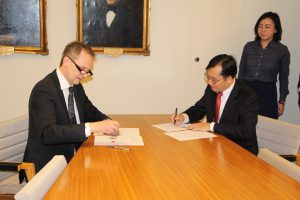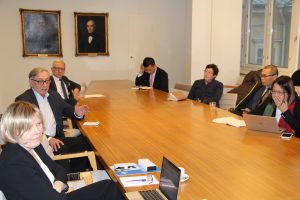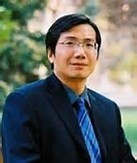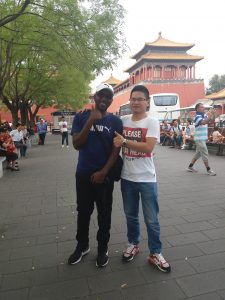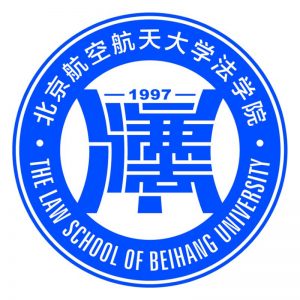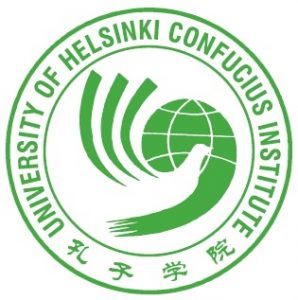On 12 January 2018, the Erik Castrén Institute of International Law and Human Rights, based in Finnish China Law Center member institution the University of Helsinki, held a day-long conference ‘The Legacy of Liu Xiaobo’.
The international conference featured speakers from countries including China, Singapore, USA, Britain and Finland and discussed the life and choices of Liu Xiaobo, Nobel Peace Prize laureate and recently deceased, that stood as an example of political and ethical activism in a world yearning for such examples.
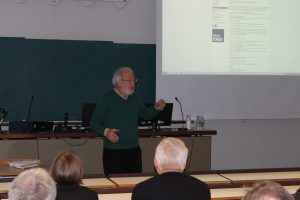
Speeches during the event, which was organized by Professor Jan Klabbers and Post-Doctoral Researcher Guilherme Vasconcelos Vilaça, evoked Liu Xiaobo’s experience, investigated its legacy and reflected on broader themes of China’s constitutional, rights, ethics and international relations thinking and practice.
The event’s keynote speech was given by Jean-Philippe Béja of the Centre national de la recherche scientifique & Centre de recherches internationales, who spoke on ‘Liu Xiaobo’s Legacy: Life in Truth, the Magic Weapon Against Post-Totalitarian Lie’.
Other speakers included Hermann Aubié (Aston University), who spoke on ‘Unlearning Enmity and Hatred: Listening to Liu Xiaobo’s Voice of Conscience by Revisiting his Struggle for Human Dignity and a Future Free China’ and Fu Hualing (University of Hong Kong), who spoke about public interest lawyering in China.
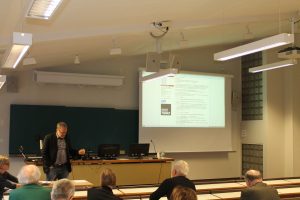
Professor Panu Minkkinen of the University of Helsinki spoke about the significance of human rights in the context of critical legal theory, after which Eva Pils (King’s College, London) discussed ‘China’s Dual State And Its ‘Enemies’ Under Xi Jinping’.
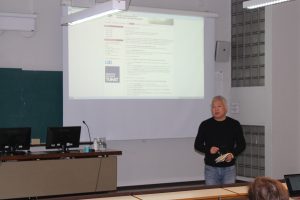
Professor Jan Klabbers of the University of Helsinki discussed ethical leadership, drawing upon his research on virtue ethics, and Post-Doctoral Researcher Guilherme Vasconcelos Vilaça’s (University of Helsinki) talk covered values and China’s ‘Belt and Road Initiative’.
Presentations were also given by Associate Professor Michael W. Dowdle (National University of Singapore), Professor Ralph Weber (University of Basel) and Professor Justin Tiwald (San Francisco State University), and the morning and afternoon sessions were chaired respectively by Post-Doctoral Research Fellow Maria Varaki and Associate Professor Pamela Slotte.
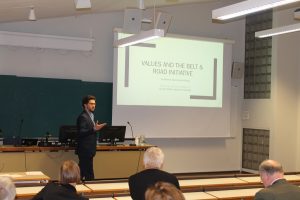

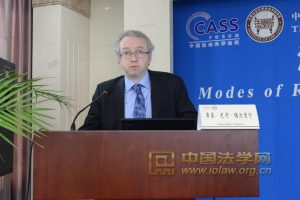
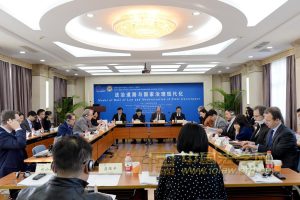
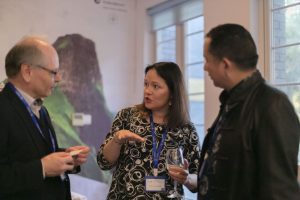

 Finnish China Law Center member institution, the
Finnish China Law Center member institution, the 